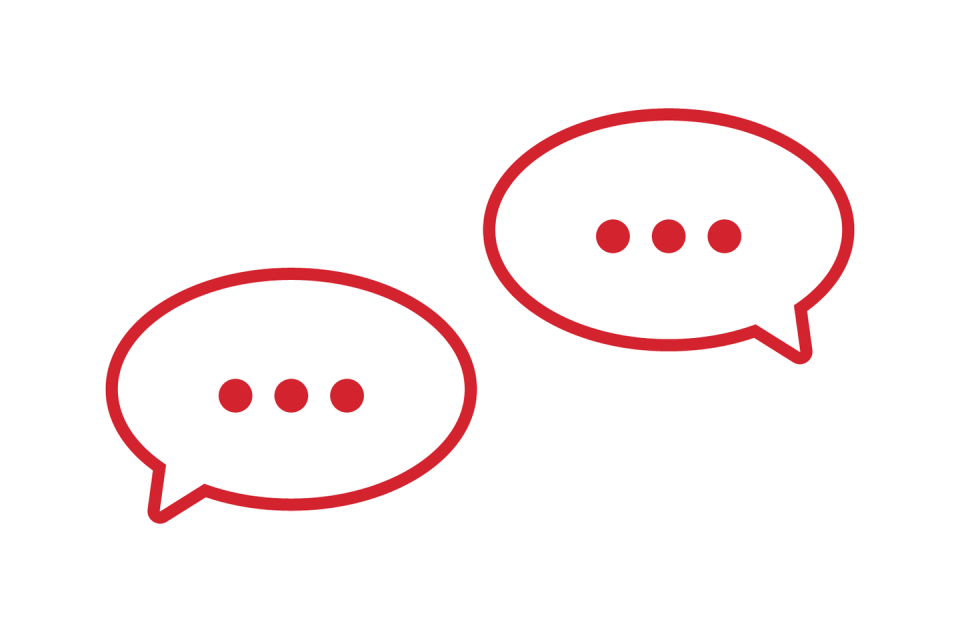How to Stay Sane in an Overwhelming Election Year

EVERY ELECTION SEASON, our merciless news cycle starts taking people hostage. I’ve been a therapist for about ten years, and many sessions that would normally revolve around my patients’ personal struggles suddenly acquire a political flavor—an argument with a racist uncle, nightmares about getting fired because of a rant posted on Twitter, excessive drinking after checking Nate Silver’s latest election analysis.
My patients are not an anomaly. In a survey by the American Psychological Association after the 2016 election, 57 percent of respondents said that politics stressed them out. In another survey, from the University of Nebraska–Lincoln, about a fifth of people reported doing or saying something they later regretted as a result of feelings related to politics. Another 20 percent said that politics had negatively affected their relationships with friends and family. I’m thinking of more than one wedding that was almost called off because of things said around the dinner table.
Why do we get ourselves into this state and how does it happen? There are plenty of theories about that, but no matter what gets us to this place, I can tell you what’s happening inside all of us. It might start with a push notification that drives you to Twitter to see what people are saying, then someone’s ridiculous comment catches your eye, your blood pressure rises, you text a friend to vent, and now you’re off to the races. The whole system has us stuck in a feedback loop seemingly designed to push our buttons and activate our stress response.
Having that response on high alert 24/7 isn’t just bad for your relationships and your social-media feed; it can be disastrous for your health. We keep looking at the news or talking about politics in the hope that it will relieve some of this anxiety. But staying engaged can make it worse, since we’re powerless to change the political narrative of the moment, and there’s always more bad news. The more we feel threatened, the more our body relies on the hormones cortisol and adrenaline to survive. Constant exposure to cortisol leads to major health problems: weight gain, poor sleep, heart disease, diabetes, depression, anxiety—and that’s not even a full list. And, no surprise here, the worse we feel, the more likely we are to lash out at friends, family, and strangers—or “add to the conversation” with a witty tweet or comment. We seem to collectively whip ourselves into a frenzy with no way out.
But take a deep breath. There’s hope for surviving this upcoming election season, and it doesn’t require giving up your smartphone and moving to the woods. The truth is, there’s no escape from partisan politics. People have disagreed about politics since the first government was formed, probably even before that. Defining the problem is the first step toward dealing with it. And in this case, the problem isn’t political conflict; it’s what we do about it. Use the three tips below to get the habits and mind-set in place that can help you make it through the 2020 election with your sanity and your relationships intact. —Avi Klein, L.C.S.W., is a psychotherapist in New York City and cohost of Hey, Man - The Advice Podcast for Men.

Learn How to Change the Topic
UNLESS AN UNFORESEEN tragedy befalls Randall on This Is Us, the presidential election will be the most important thing to happen on a Tuesday all year long.
But that doesn’t mean you have to talk about it. Why would you want to? At this stage, very little good can come from additional conversation. What’s the best you could hope for? That you change someone’s mind? LOL, no. Hearts and minds are not won via cocktail-party chatter. They evolve over time through lived experience. So when the election comes up in conversation—and it will, whether you want it to or not—you might want to change the subject, lest politics hang heavily over your social occasion like a lingering, noxious fart.

The easiest way to extricate yourself is to say, “You know, I haven’t been following it lately. Instead, I’ve been . . .” and then talk about literally anything else. Or pivot with a question. If they say, “Hey, did ya watch the debate last night?,” you say, “Nope! I watched the Rockets game. Think those guys can go all the way?” They say, “If my candidate loses, I’m moving to Canada.” You say, “Oh, man, where exactly will you go?” They almost certainly won’t have a real plan; empty threats like this are just how people talk about politics, and they’re yet another reason not to engage. But in the unlikely event that they’ve thought through their American exodus, you already know what to say next: “Can I help you pack?” —Nick Marino

Follow a Healthy Media Diet
BACK WHEN YOU couldn’t get CNN in your cave, you were always on high alert for some crumb of news that would tell you it was safe to go out and score some dinner. You’d scan. You’d consume. Same with food. It was scarce; you stayed vigilant. Scarfed up every bit you got. Which is a pretty nasty evolutionary habit to break. Now that we’re bathing in an easily accessible glut of news, we’re suffering from a kind of cognitive gluttony. We’re just not built to handle what’s coming at us. So until evolution catches up, we gathered top experts to outline exactly what a healthy media diet looks like.

Have three media meals a day.*
Unless your livelihood depends on knowing every single nuance of every single developing news event, you don’t need to check the news every minute. Look at the news and your social-media feeds once in the morning, once at lunch, and once in the evening, says Mary McNaughton-Cassill, Ph.D., who has researched the effect of news watching at the University of Texas at San Antonio. That’s it.
*As with a regular diet, meal frequencies and sizes can vary depending on individual factors, such as your personality, profession, and comfort with ambiguity.
Cut out junk.
Let’s start with social media, because, like the checkout counter at the mini-mart, its very nature is to serve up the most irresistible (and inflammatory) stuff possible. Cutting back also helps you avoid the ugly vortex of mindless scrolling. “Many people scroll when they’re bored, depressed, or anxious,” says McNaughton-Cassill, and news-related content can reinforce these negative emotions. No need to eliminate everything; just unfollow what annoys you. And if you see something alarming, click through to the original source, says journalism professor Karen McIntyre at Virginia Commonwealth University.
Figure out if that burger is impossible.
Fake reported news, like fake meat, is really good at its game right now. While social media giants are making efforts to tag false information, you can’t expect them to do the job for you. Refine your own BS detector. Boost your analytical abilities with questions like “If I’m wrong, where can I find evidence that disconfirms my belief?” says Michael Bronstein, Ph.D., at Yale University. Check what the other side says. Allsides.com links to articles reflecting the left, center, and right views on various issues. Visit Factcheck.org, a site that verifies and refutes claims in news stories.

Reach for something really satisfying.
First, fill up on multiple, credible sources. No publication is perfect, but Knight Foundation surveys suggest that people perceive PBS News, National Public Radio, the Associated Press, ABC News, and CBS News to be the least biased news sources. If that leaves you cold, check the growing movement in news called solutions journalism. (Find stories at solutionsjournalism.org.) This “flip the frame to show how people are responding to problems,” says McIntyre. Consuming this news may make you feel better about negative news you read later. —Julie Stewart

And if the election doesn't go your way...adopt this strategy.
Someone, eventually, is going to win this election—which means many other someones will lose. Perhaps even your chosen someone will be swept into the dustbin of history.
If this happens, do not despair. Resist the urge to purchase a piñata in the shape of the winner. That won’t help. What will help is moving off the sidelines and into the game. Instead of channeling your hopes into someone else, start a little grassroots activism yourself. March. Organize. Protest. Boycott. Write an op-ed. Run for local office. You’re a citizen. Act like it.
Also, take solace in the fact that losing candidates typically land on their feet. John McCain returned to the Senate, where in 2017 he cast the decisive health-care vote. Even John Edwards bounced back from fathering a secret love child while his wife was fighting cancer; he’s now a civil rights lawyer.
If you absolutely can’t quit your candidate, you’ll find a way to keep backing them. But frankly, it’s better to move on. Whoever loses the 2020 race will be just fine. And so will you. —Nick Marino
You Might Also Like
